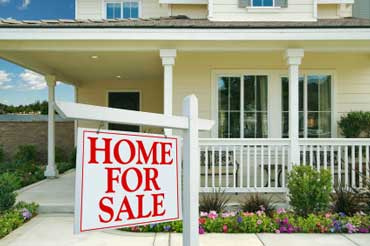
MarkMoz12
The inflow of capital contributed to economic recovery after the crisis. But housing prices soon reached critical levels that required action from local authorities. Some attempted to introduce taxes to shoo away buyers from abroad. In some cases, taxes were succesful, at least for a while.
Yet, the buyers keep coming to other cities, despite the desire of the Chinese government to contain the outflow of capital.
Although Australia, New Zealand and a bunch of cities in Canada increased taxes for buyers from abroad, and some are concerned that house prices will keep rising, writes The Wall Street Journal. Sydney, which introduced a tax of 8% for foreign buyers last summer, found that this did not stop buyers from abroad.
In 2016, Vancouver introduced a tax of 15% for foreign buyers. When this did not work, the city authorities began to develop more stringent measures together with the British Columbia authorities. In February, the province raised the tax to 20% plus extended its operation. The watchdogs also introduced a new tax - 0.5% of the value of real estate, rising to 2% in 2019 - for homeowners who do not pay tax on income in Canada.
Earlier, British Columbia introduced measures in order to curb the re-sale of condominiums before the completion of construction.
Once New Zealand introduced a ban on the purchase of houses by foreign speculators (this measure the IMF called "discriminatory") in the last year, buyers returned to Canada.
Last year, Victoria, the capital of British Columbia, was named the best new real estate market in the world in the Christie's International Real Estate study.
Prices for single-family homes in Victoria in May rose by 9% in annual terms and reached a record high level - about $ 570 thousand.
And investors are already considering Thailand and Malaysia as the next markets ripe for foreign purchases.
In fact, citizens of China are allowed to transfer to offshore an amount equivalent to only $ 50 thousand a year. But there are many other ways that allow making larger purchases abroad. During the next decade, according to forecasts of some analysts, Chinese investors can spend abroad up to $ 1.5 trln.
The housing market in China itself showed almost two-year boom, which gave the economy a significant boost, but caused concern about the emergence of "bubbles". The government has been taking drastic measures since the end of 2016 to reduce speculative purchases.
Recall, following the annual Central Conference on Economic Work in December, Chinese leaders said that the supply of borrowed funds should support the purchase of real estate for living and strictly suppress speculation.
In November, China's Central Television (CCTV) reported that the country will strengthen financial regulation and take tough measures to combat speculation in the real estate market in order to stabilize prices and prevent the emergence of "bubbles".
China also promised to improve the management of the land market and prevent cases of overstatement of land prices, which push up prices for real estate.
source: wsj.com
Yet, the buyers keep coming to other cities, despite the desire of the Chinese government to contain the outflow of capital.
Although Australia, New Zealand and a bunch of cities in Canada increased taxes for buyers from abroad, and some are concerned that house prices will keep rising, writes The Wall Street Journal. Sydney, which introduced a tax of 8% for foreign buyers last summer, found that this did not stop buyers from abroad.
In 2016, Vancouver introduced a tax of 15% for foreign buyers. When this did not work, the city authorities began to develop more stringent measures together with the British Columbia authorities. In February, the province raised the tax to 20% plus extended its operation. The watchdogs also introduced a new tax - 0.5% of the value of real estate, rising to 2% in 2019 - for homeowners who do not pay tax on income in Canada.
Earlier, British Columbia introduced measures in order to curb the re-sale of condominiums before the completion of construction.
Once New Zealand introduced a ban on the purchase of houses by foreign speculators (this measure the IMF called "discriminatory") in the last year, buyers returned to Canada.
Last year, Victoria, the capital of British Columbia, was named the best new real estate market in the world in the Christie's International Real Estate study.
Prices for single-family homes in Victoria in May rose by 9% in annual terms and reached a record high level - about $ 570 thousand.
And investors are already considering Thailand and Malaysia as the next markets ripe for foreign purchases.
In fact, citizens of China are allowed to transfer to offshore an amount equivalent to only $ 50 thousand a year. But there are many other ways that allow making larger purchases abroad. During the next decade, according to forecasts of some analysts, Chinese investors can spend abroad up to $ 1.5 trln.
The housing market in China itself showed almost two-year boom, which gave the economy a significant boost, but caused concern about the emergence of "bubbles". The government has been taking drastic measures since the end of 2016 to reduce speculative purchases.
Recall, following the annual Central Conference on Economic Work in December, Chinese leaders said that the supply of borrowed funds should support the purchase of real estate for living and strictly suppress speculation.
In November, China's Central Television (CCTV) reported that the country will strengthen financial regulation and take tough measures to combat speculation in the real estate market in order to stabilize prices and prevent the emergence of "bubbles".
China also promised to improve the management of the land market and prevent cases of overstatement of land prices, which push up prices for real estate.
source: wsj.com





